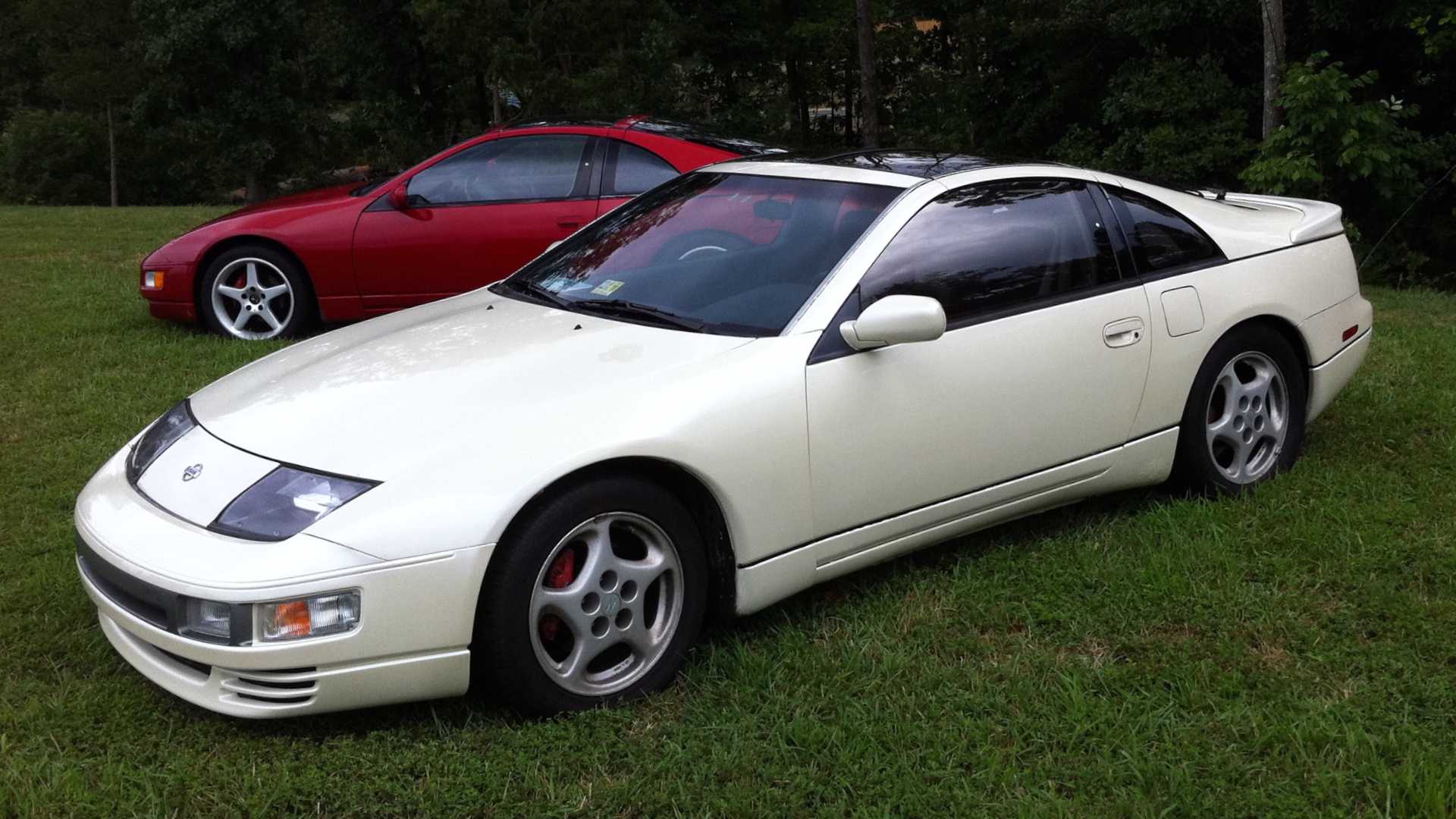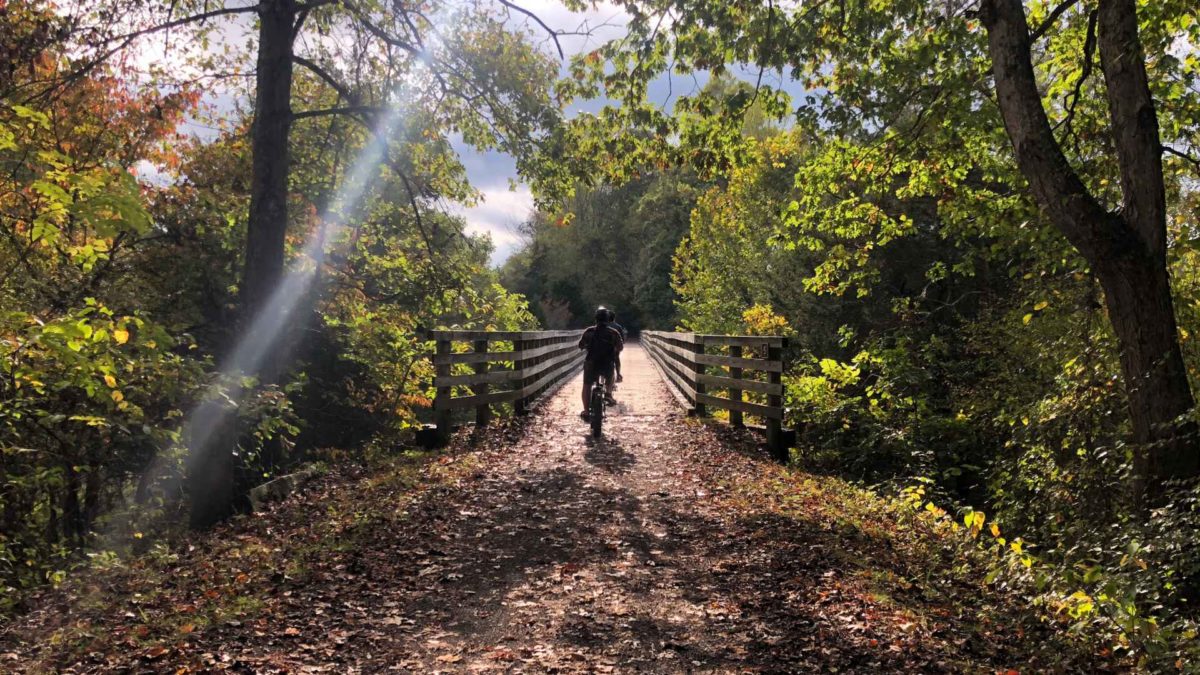If you surveyed a group of people that claimed to be pursuing financial independence and asked them —
“What is it about financial independence that makes it worth the sacrifice to you?”
I think you’d almost certainly hear a common response: freedom.
But what does “freedom” really mean?
Freedom “From”
So many of us in our modern, digital world still feel somehow chained to a desk. Even when it’s a virtual desk. Or even where that desk is represented best as a set of tools you’ve mastered and you feel obligated to follow to their bittersweet end.
It’s an identity. A routine. A cycle we want to break out of.
It’s freedom from dictation. A schedule. An alarm clock.
Freedom from someone else directing your day.
Freedom from worrying about credit card bills. It’s having enough money in the bank to meet not only your needs but also your wants.
Freedom from dependence. It’s the realization that smacks you right in the mouth when you’re suddenly jobless. As Dominic commented on my last post:
…after being suddenly laid off just after starting what promised to be a stable, rich career I learned I can’t depend on a MegaCorp for financial security.
That initial spark that leads us into searching for frugality tips on the internet or why the words “money mindset” peppered into an interview jump out from the other musings and pique our interest is this idea that we can obtain a level of freedom we don’t currently have.
We recognize something is missing.
But is that really all there is to it—escape?
Is financial independence just escapism?
Is there value in financial independence beyond achieving freedom from life’s stressors, external direction, and the shackles that debt brings?
Joe connected the escapism that financial independence brings with, well, something more than just that in another comment:
[Some people] can fit in and be happy with the program. They don’t mind putting up with some BS as long as they can be “normal”.
There are always a few people who don’t fit in. If they’re smart and tenacious, they can figure out how to live life the way they want. FI is just one way to escape.
Why? I just want to do my own things even if they are pretty boring. I don’t like people telling me what to do or telling people what to do.
Financial independence removes hardships from your life. Achieving it can break you out of a cycle that keeps your time someone else’s to leverage and direct.
It can let you escape.
But once you’re there, once you’ve removed those weights on your mind, you’ll find space. Emptiness.
Something is missing.
Where once you were weighed down by a need to fit your social role in the hierarchy you find yourself in, you’ve discovered how to be yourself and to be comfortable in who you are.
You’re free from expectation.
Once money is no longer the motivating factor behind your day-to-day work and how you fill your time, you can reevaluate why you’re doing the work you do.
You’re free from income and money being your motivation.
Financial Independence lets you escape. It gives you “freedom from” countless undesirable parts of life.
It’s the removal of these elements of your life that can leave you with the feeling that something is missing. It’s easy to see these as new holes, new emptiness in life.
This is the problem newly minted financially independent folks find most difficult to overcome. And unexpected.
What FI takes away
Read through FIRE forums and you’ll find plenty of quite wealthy and “free” people tripping over the holes that financial independence creates. Losing your sense of self and identity can make anyone uneasy. And it becomes really apparent when you’re asked: “so what do you do for work?”
I’ve got an even better follow-up question for you, too.
So what do you like to do besides work?
Don’t underestimate how much achieving financial independence will remove from your life.
But it also creates.
We might think of the first stage of FI as the removal of what you don’t like. It’s “freedom from”.
And if that’s the case, I’d argue that the second stage is rebuilding. It’s creating a new identity no longer around how you filled your days with labor directed by someone else, motivated by money. Instead, it’s exploration.
It’s “freedom to”.
Freedom “To”
Once you’ve escaped all your demons and freed yourself, what are you going to do with your freedom?
Instead of thinking of financial independence solely as an opportunity to create “freedom from” hard parts of life, there’s a more constructive way to create a longer-lasting and meaningful purpose behind FI.
As Noel commented:
I’ve noticed that the discipline of FI; the saving, the streamlining, and the constant learning and self-reflection, are just awesome habits to have and serve a bigger purpose than a number. For me, it’s living intentionally.
One of the initial motivations to chase financial independence for many of us is to free ourselves from aimlessness and external dictation. Once that’s removed, you’re left with a choice in how you spend your time and energy.
That doesn’t necessarily mean leaving work and telling your boss to take a hike. It can, but for you, maybe what you value and what you want to focus on is a different part of life.
When you have complete confidence in your lack of dependence on your job as a source of money, you can also mold the work to better fit your priorities. You can push the edges and say no to schedules, projects, or instructions you don’t like. You can take a risk more confidently.
Counterintuitively, for a lot of people, small changes and greater confidence in the workplace yields an atmosphere they’re happy to stick with.
With work on autopilot, you’ll have more room in your head, your heart, and your life to focus on the challenges and journeys that really drive you.
That’s freedom to live intentionally. It’s more than just freedom from dictation. It’s what you add to life.
Who will you be?
Someone once told me that you become an entirely new person every ten years or so. While that’s at least somewhat accurate scientifically speaking in terms of our mass, what my friend was really talking about is you and me as people. Our desires, interests, and passions.
What we were a decade ago is almost certainly pretty far from who we see ourselves as today.
Back in 2011—a decade ago—I was just getting into running (now a 3-5x/week habit).
I was living and working in the Washington DC area.
For some reason, I had two cars yet commuted to work (yes, I was employed by someone else!) every day on the subway.

I was still getting my FIRE-bearings and falling into the trap of lifestyle creep.
My investments ran the gamut from precious metals to individual stocks.
The truth is, that guy back then, he’s a totally different dude. Sure, I came from him. But he’s not me. My preferences are different. What I want from life is different.
And, undoubtedly, ten years from now I’ll look back and laugh a little at the me of today.
You will, too.
What you think your purpose for financial independence is, something that takes most people several years—typically more than a decade—to achieve, won’t be the reality you see in the world and yourself once you reach it.
And that’s okay.
Financial independence offers you the freedom to recreate yourself without the weight that money worries anchor you with.
Relish the opportunity.
What will you add?
In my last post, I had a short section that was the inspiration for this post. It was about freedom.
Specifically:
Freedom!
– Freedom from a tyrannical boss.
– Freedom from a work-life balance that looks like a seesaw with a mopey adult on one side and three kids trying to yank down the other end.
– Freedom from a scheduled, repetitive day.
But if FI is truly about freedom, then it’s about adding as much as it’s about the removal of what we don’t like.
It becomes:
Freedom!
- Freedom to create a mentoring relationship — either to learn or teach
- Freedom to choose how much work and how much home life should balance your day
- Freedom to direct your day as you see fit, with novelty and serendipity its impetus
Mrs. RFL hit the nail right on the head with her comment about why she’s pursuing FI:
My “why” is freedom to live the life I want to live, which involves being present for my family, indulging in the simple things in life, giving back in ways that feel meaningful to me, spending time finding and fine-tuning my passions (once I figure out what those are), and being able to spend more time appreciating nature.
For me, I think one of the greatest values I’ve found in financial independence is the freedom to be inspired.
Inspiration is a fickle mistress and if you’re not ready for it when it decides to come knocking, it won’t bother. There’s a thousand—a million—a billion—other people out there just begging to find inspiration.
If you don’t have the space, autonomy, energy, or interest in bringing inspiration’s idea to fruition—why should it take a chance and time with you? Perhaps it’d do better burying itself in someone else’s head or heart.
And so it will.
But if you’ve found the freedom to be inspired?
Inspiration might strike you as it passes, find the room you’ve made in your mind to be inspired, and take you by its stranglehold. It’s that intoxicating idea that’ll push the edges of your boundaries and penetrate your full mind.
It’ll demand you bring it to life.
And it might become the source of your greatest passion or deepest love.

Escapism
Financial independence offers the ability to escape. It’s an opportunity to earn your freedom from a job you hate, a cycle of dependence, or simply from having your time taken from you.
But it’s more than that.
It’s the freedom to choose what’s important in your life. The purpose isn’t escapism, that’s just the ad in the window to get you in the door. Once you’ve done the cutting, it’s your responsibility to create an identity of your own choosing.
You’ve got the freedom to do that, if you can get there.
Thank you so much to several commenters on my previous post that gave me the motivation to expand on my idea about the two types of freedom. Including:
- Joe @ Retire by 40
- Mrs. RFL @ Rich Frugal Life
- Noel @ Happily Disengaged
- Freddy Smidlap
- And plenty of regular readers!
You all are one of the most joyous parts of writing TicTocLife. Thank you for being there!
What do you think about this dichotomy between freedom “from” and freedom “to”? Do you think FIRE is just a means of escape? Let me know in the comments!


12 replies on “Is Financial Independence Just Escapism? (2 Types of Freedom)”
Sure, escape from work you don’t love to work that you do.
Honestly, I just want to spend time with my two kids until they no longer want to. It’s as simple as that.
But it does seem like knowledge work is better now due to so much more flexibility. It doesn’t seem like you have to work as long and you get paid much more now. So once my kids are both in school full-time, I’ll considered full-time work again.
Sam
Hey Sam!
Thanks for coming by! I think your point actually connects well, but maybe it’s how we define work.
“…escape from work you don’t love to work that you do.”
and
“I just want to spend time with my two kids until they no longer want to.”
The work that you love to do might be that which is with your family. Sure, you’re not getting paid. And your boss might be your partner in the house, ha, but it’s still work. And I’m certain you find it entirely rewarding. That’s a pretty good gig to find freedom to fulfill!
Cheers!
FI is both, freedom from the time sink that is full time work and freedom to find what is truly important. The mental bandwidth gained from financial independence is enough to open myself up to new ideas. I can’t imagine having the energy or motivation to find and pursue my interests and passions when I’m worried about paying bills and pleasing my boss.
Hey Mandaloney!
I think you’re right—it’s both. And to your point, it’s difficult to imagine obtaining those “freedom to” elements without first releasing yourself through “freedom from”!
I think you need to pursue freedom from and freedom to. It’s a balancing act and I have seen some in the FIsphere pursuing one or the other to their detriment.
If all you are focused on is freedom from, you may leave your job and be left with the gaping, existential ‘now what?’ Or perhaps be a little too ‘leanFI’ and expose yourself to more sequence of returns risk than you are really comfortable with. Or you may realize ‘baristaFI’ may not be sustainable if say a global pandemic strikes, and that retail and service jobs are pretty stressful.
On the other hand focusing too much on freedom to can be bad. Yes, beautiful days will pass by with you running TPS reports while you could be riding your bike. But even with a 70-80 percent savings rate, you’re still looking at a 10 year career at least. That’s a significant amount of time that requires commitment to your industry, even if you know it’s temporary. You don’t have to sell your soul to the company, just rent it for a reasonable rate haha. And if you are reliable and an expert in your field, you have much more leverage to dictate flexible work arrangements after FI.
So like everything in life we have to find that balance, freedom from and freedom to. Both are motivating and necessary, but neither are sufficient by themselves.
I retired at the same time as two of my friends, we were all five or six years away from conventional retirement age. I’m loving this life but the other two were bored to death and went back to full time jobs. I retired to a part time consulting practice and a bunch of physically active hobbies I share with my wife and friends. They really didn’t do much outside of work and didn’t have a plan for working part time in retirement. They merely retired to escape work and that wasn’t enough to make them happy. I retired to work less and play and volunteer more, and it has been a great plan. No way I’d go back to a 9 to 5. In fact I have turned down several fat job offers because, why would I want a job?
“Freedom” and “escapism” is somewhat philosophical.
FIRE gives you “freedom from” work, if you don’t want to work any longer. But FIRE also gives you “freedom to” do your *own* work, if you just hate your 9-5. For example, I’d imagine I’d still work on my own stuff after going into FIRE, but I wouldn’t want to go back to the corporate world ever.
And I feel like there’s normally a negative connotation of escapism. For example, one might interpret it as “why do you want to escape your high paying job? Why can’t you just be happy and deal? If you can’t be happy with your job, what makes you think you’ll be able to find happiness and contentment without it?”
But I think escapism is good in this context. Having FIRE strictly gives more optionality than not being FIRE. Being FIRE gives you more time to work on finding out what really makes you tick and living an examined life. Versus no FIRE means you’re just stuck ‘dealing with it’ until it’s too late to examine your life critically anymore – incinerating time like this is a great way to maximize regret.
In other words: escapism might be required depending on where you are in life. You might just be not ready to commit to “the one path” for the rest of your life yet, and being able to escape something that takes 8 hours out of the day to learn more about the options in life is definitely much better than the alternative of not being able to do that. Escapism isn’t about ‘shiny object syndrome’ or finding the next thing that excited you endlessly, though it can be that – escapism to me is more about escaping current conditions that are *known to be bad* for a chance to land somewhere better. And it might take a while escaping a bunch of different things until one finds something that really works for them.
Everyone has to find their own way in life.
For me, escaping from work was the more important part of the equation when I was working full-time. It already took so much effort. I figured I could leave the “freedom to” part until later.
It worked out extremely well for me. I never really fit in with the normal working world and I don’t have any problem figuring out what to do after early retirement. It really depends on your personality. The transition can be very difficult for some people. My wife fits in better so she continues to work. I don’t think she’ll enjoy early retirement much. She doesn’t have either reason to retire. No need to escape from or any big plans after retirement.
Thanks for the mention!
Love the follow up post, Chris! And thanks for the nod. Your blog is one of my favorites to follow as you continue to inspire me on our family’s FIRE journey. 🙂
I had a pretty charmed and fun career and loved it. I just had no desire to spend the entirety of my brief live doing just that. As I’ve said this journey’s only one-way ticket long. And as Palahniuk said, “this is your life and it’s ending one second at a time.” In my experience, most folks don’t consciously reflect on that too often.
Anyway, for me, FI is a way to allow me to invest all of my remaining time pursuing a life that I find meaningful without unnecessary external expectations or demands. I am free to live a life driven exclusively by my imagination and inspiration.
That said, the underlying problem with human fulfillment isn’t necessarily having enough time, it’s not having enough imagination. That’s why people still ask me, “What do you do with all your time?” and why some of Steve Ark’s buddies above went right back to work after retiring. I’m grateful to be FI, but will always say it’s not for everyone.
Awesome post. Thanks for the mention. You ask some really tough questions framed in a way I have not thought of for FI. Like “What does FI take away from your life?” That’s something to really think about. Work sucks away a huge chunk of my life, whether I like it or not. My best hours of the day are spent at work, and I really push myself out of my comfort zone at work. As much as I hate arguing and disagreeing with others (and complaining to my wife about it), its a huge part of my job and my life. It feels good to “win” at work. How will I achieve this in a life without work? Who or what will be my adversary?
But yeah, FI for me is about control of time. Especially with my kids. I also see it as location independence. If I take my family out of FI, its about reading and writing till my heart is full. Then add in some travel and street food. But what about social interaction? That’ll be something I’ll have to work on. I’m more of an introvert than I thought I was, I didn’t realize this till I took a break from drinking. I now this will be something I’ll have to challenge post accumulation.
Really good post and great writing.
Yep. It’s really easy to see all the bad parts of work, career, job, etc. and think “boy, can’t wait to have that out of my life!”. But, it almost certainly brings some sort of positives. At least challenges and a feeling of success occasionally. You hit that point right on the head–how will you bring something else into your life to meet those same needs? FI certainly takes a lot away, even if we generally think of that as a positive.
That’s certainly a good thing to think on, what it’s all about for you. Control of time I think hits most people pretty hard as important, and in a lot of the ways you mentioned. Relationships are hard–especially as you remove them from your life with FI. My follow-up post addresses that and an idea–a social index fund. 🙂
Glad you found it enjoyable!